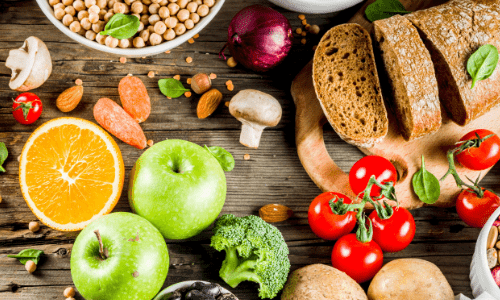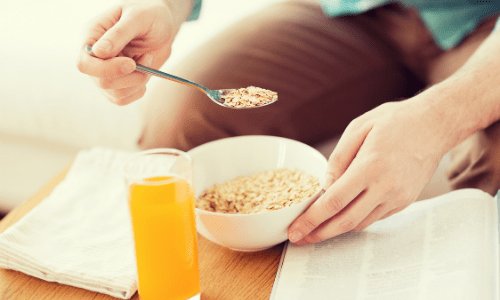A Healthy Diet in Recovery
Alcohol and drug abuse take a big toll on the human body. While the recovery process is gradual, changes in daily food intake can have a quick and significant impact on how well the body rebuilds and maintains health.
Individuals in recovery may experience feelings of depression, anxiety and irritability. Food cravings, difficulty sleeping, and memory loss are also common effects of withdrawal.
To support healthy body and brain functioning, consuming foods high in carbohydrates, proteins, thiamine, folate or folic acid, and B-12 is recommended.

What to eat: nutritious foods for a healthy recovery




Complex Carbohydrates
50-55% percent of calories from grains, fruits and vegetables.
Dairy
2-3 cups of calcium-rich foods or beverages such as cheeses, yogurt, cottage cheese, or milk.
Protein
15-20% of calories (2-4 ounces twice daily) of meat, fish, tofu, eggs, beans or legumes.
Healthy Fats
30% of calories from good oils such as canola, olive, and oils found in fish, nuts or avocados.

Tips to support a healthy diet and lifestyle in recovery
- Begin the day with breakfast to jumpstart metabolism and nourish the body
- Try to make healthy choices for lunch such as grilled chicken, salads, or turkey breast or tuna sandwich on whole wheat bread
- Limit sugar and sweets
- Drink plenty of fluids; limit coffee and other high-caffeine beverages
- Take a daily multi-vitamin
- Work in some form of exercise each day even if it is a brief walk or stretching.
As part of the Recovery Nutrition Program, Welcome House works to incorporate a variety of whole foods among its daily menus. These are foods containing amino acids, antioxidants, as well as those that boost gamma-aminobutyric acid (GABA), a chemical messenger in the brain that promotes calm and relaxation.
